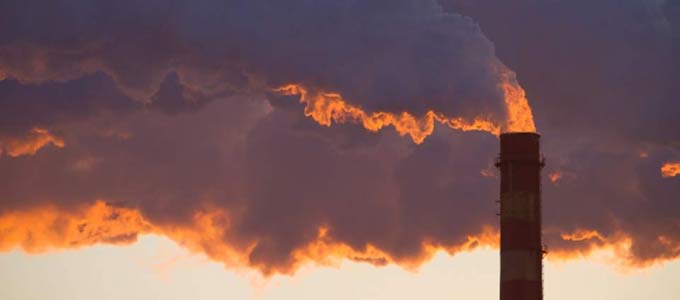April 22, 2025 01:23 pm (IST)

UN concerned over rising CO2 levels as average hits new high
New York, May 27 (IBNS): Concentrations of carbon dioxide in the atmosphere have crossed a new threshold, the United Nation's weather agency on Monday confirmed, warning that time is running out to curb rising greenhouse gas emissions.
In April, monthly concentrations of carbon dioxide (CO2) in the atmosphere topped 400 parts per million (ppm) throughout the northern hemisphere, the UN World Meteorological Organization (WMO) reported.
“This threshold is of symbolic and scientific significance and reinforces evidence that the burning of fossil fuels and other human activities are responsible for the continuing increase in heat-trapping greenhouse gases warming our planet,” the WMO continued.
CO2 levels first reached 400 ppm in April 2012, but this is the first time the monthly average passed the threshold.
The agency predicts the global annual average CO2 concentration will cross this threshold in 2015 or 2016.
“Time is running out,” WMO Secretary-General Michel Jarraud said in the statement.
“This should serve as yet another wake-up call about the constantly rising levels of greenhouse gases which are driving climate change. If we are to preserve our planet for future generations, we need urgent action to curb new emissions of these heat-trapping gases.”
The UN is leading the effort towards an international, legally binding climate agreement by the end of next year.
United Nations Secretary-General Ban Ki-moon is convening a climate summit on Sept 23 with leaders from Governments, businesses and civil society to raise the level of ambition, catalyze action on the ground and increase political momentum towards such an agreement.
The overall goal of these efforts is to limit the average temperature increase to two degrees Celsius above pre-industrial times.
The Intergovernmental Panel on Climate Change (ICCC) reported in April that to keep global mean temperature to two degrees Celsius, means lowering global greenhouse gas emissions by 40 to 70 percent compared with 2010 by mid-century, and to near-zero by the end of this century.
(Photo: UNEP)
Support Our Journalism
We cannot do without you.. your contribution supports unbiased journalism
IBNS is not driven by any ism- not wokeism, not racism, not skewed secularism, not hyper right-wing or left liberal ideals, nor by any hardline religious beliefs or hyper nationalism. We want to serve you good old objective news, as they are. We do not judge or preach. We let people decide for themselves. We only try to present factual and well-sourced news.
Support objective journalism for a small contribution.
Latest Headlines
UN says 125,000 truckloads of debris need to be removed in earthquake-ravaged Myanmar
Tue, Apr 15 2025
15 flights diverted, many delayed as dust storm hits Delhi, Haryana
Fri, Apr 11 2025
Delhi witnesses heatwave conditions with temperatures soaring above 40.2 degrees Celsius
Mon, Apr 07 2025
Madhya Pradesh: After pelting stones at cheetahs, Indian villagers now offer water to animals
Sat, Apr 05 2025
USA: Growing wildfire in California prompts evacuations
Mon, Mar 31 2025







